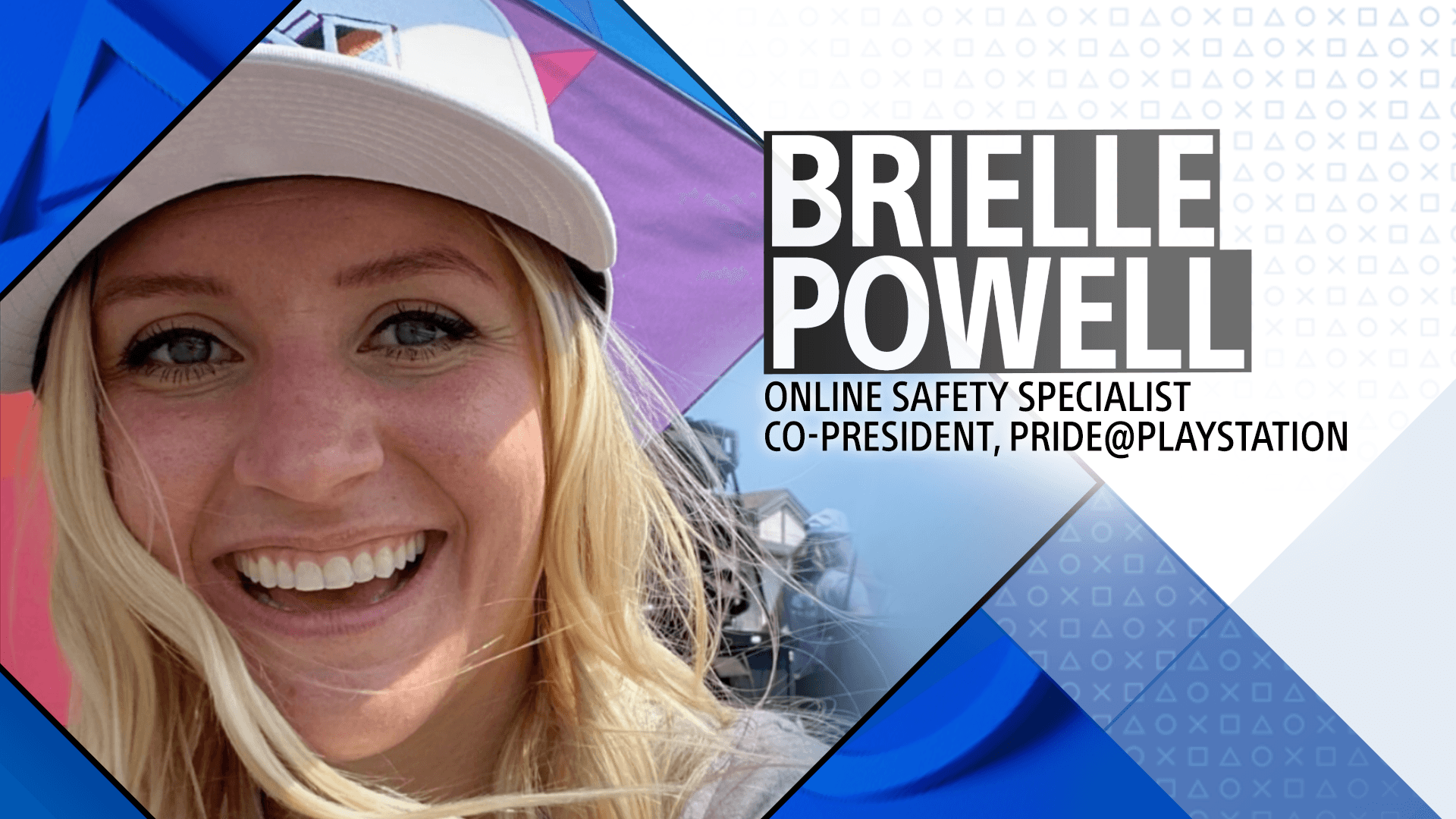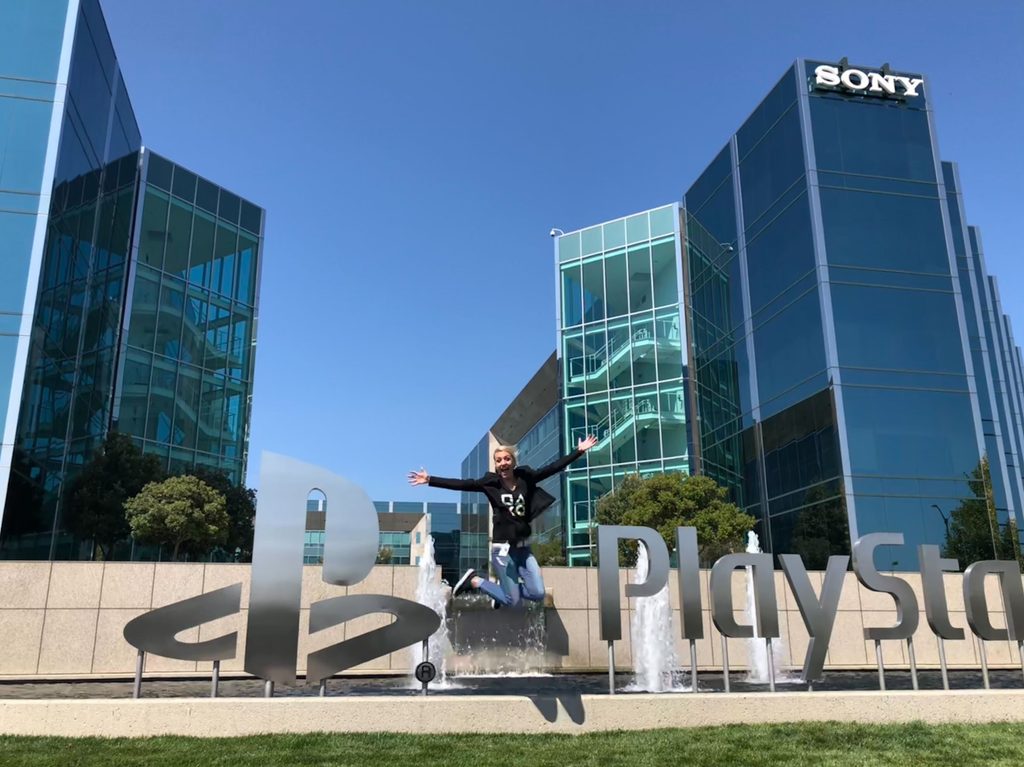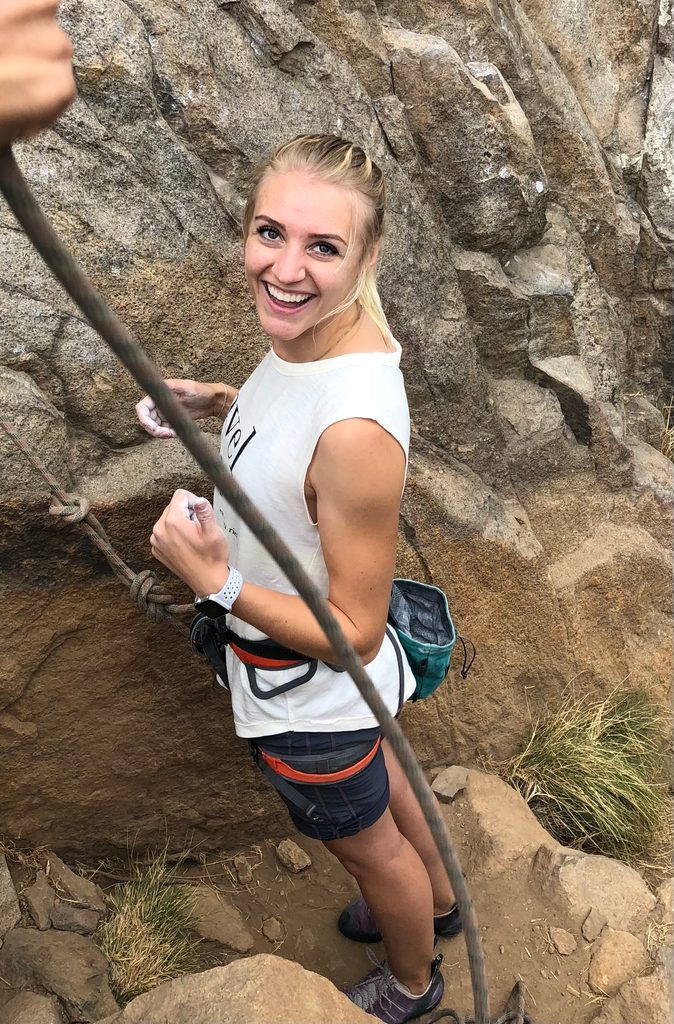Sony Interactive Staff Spotlight: A Conversation with Brielle Powell
Bringing Safe Haven to Online Play

A variety of factors have contributed to the growth of online play across the video game industry and, along with it, comes a critical need to cultivate a safe and welcoming space for players from all walks of life. Brielle Powell, Online Safety Specialist at Sony Interactive Entertainment, is one of the people working to do exactly that and her efforts are informed by her own experiences.
“PlayStation was my safe haven as a kid,” Brielle says. “I grew up in an environment where I was expected to be someone I was not. With video games though, I was able to play in worlds where I could be my 100% authentic self and also be accepted by a community of people who liked me for exactly who I was. And if they didn’t, there was this safety in anonymity that I loved. Now working at Sony Interactive, I am able to help create a safe haven for a new generation of kids.”Brielle describes her job as “helping to form and shape the policies that create a safe and inclusive experience for all users on the network.” She further expressed that, while some of the things seen in this work can be difficult, “it’s a very close knit Online Safety Team who are extremely dedicated to understanding the online community so that we can create a fun, welcoming and safe experience for all users.”
We had the pleasure of speaking with Brielle about her own self-discovery in online gaming, how an encounter at a competitive event sparked her interest in joining the industry, and how the perspectives of her and many others at Sony Interactive help to inform her work and shape important decisions within the company.
From Dominating Spaces to Protecting Them
Brielle’s path to becoming an Online Safety Specialist at Sony Interactive was sparked by returning to her safe haven, specifically a space that she’d grown to love and was beginning to miss as she toiled at a job she didn’t feel much of a connection toward.
“I got really good at video games because I spent so much of my time in the space,” Brielle says. “So I dove into competitive gaming from there.”
Brielle played competitive franchises like Call of Duty, SOCOM U.S. Navy SEALs and Tom Clancy’s Rainbow Six, honing her skill over a degree of repetition that she never tired of.

“That experience is definitely where the interest in the community aspect of gaming started for me,” she says. “People didn’t know what you looked like. They didn’t have your social media account. That wasn’t really a thing as I was growing up. They just liked you being your authentic self and there was comfort and even a feeling of safety in knowing you did not need to put on a mask while gaming. It was so freeing having spaces where you could do what you loved and be your full self while doing it.”The seeds of making a career through being a part of the industry were planted around 2007. Her group was offered an opportunity to travel to events and compete. While participating at a Major League Gaming (MLG) event, she also got a chance to check out panels and see others talk about video games.
“I thought it was the coolest jobI’d ever seen. How are people standing on a stage talking about a video game? That’s when it clicked. I wanted to do something that matters, something I’m passionate about, and something where I can share that passion with others.”
Almost 10 years later to the date, Brielle went from watching and envisioning herself on that stage to presenting on it as part of Sony Interactive in 2017. Soon after, she commemorated the “really serendipitous” moment with a PlayStation tattoo.
Pride@ PlayStation
Much like she was able to be herself while gaming online, Brielle has found a professional home at PlayStation where, especially as co-president of the Pride@PlayStation employee network (eNet), she gets to thrive as her true self and share in the experiences of others with journeys equal parts similar and different. eNets like Pride@PlayStation, ABLE@PlayStation, and Black@PlayStation offer a multitude of perspectives, which help Brielle and her team with their jobs almost daily.

“Being able to partner with other eNets has impacted the community in the best possible way,” she says. “Instead of us making an assumption about a policy, what should or should not be allowed on PlayStation, or what is or is not considered offensive to a specific community, we go to our eNets and speak with groups made up of those individuals who may be affected.”
“We maintain that communication year round because language changes every day. Things that were offensive yesterday may not be offensive today. When social situations change, we can reach out to those within that group or region specifically and rely on them to improve our growing and evolving policy.”
Brielle also considers efforts to help people celebrate their identities especially near and dear to her. “Some of my favorite things would be assisting with the PlayStation Gear store,” she says. “Many companies are accused of using Pride as a quick marketing campaign, only being invested once per year. At PlayStation, it’s built from the inside out. This is born of a group of individuals who are in this community or allies of this community and are supporting these initiatives including but not limited to items available year round.”
Celebrating one’s self is reflected inside the company as well, coming through other crucial initiatives like gender affirming healthcare and improving locations by adding gender inclusive restrooms as well.
“Sony Interactive is really dedicated to its employees,” she says. “They want the public to have a place where employees and players can feel they can grow up, play, and even work. Thus, I proactively, through my day job as well as Pride@PlayStation, work hand in hand with our HR partners to ensure that our offerings are inclusive and equitable across the board.”
Taking Pride In Our Future
Social spaces are ever-evolving and, as such, so are the strategies needed to make sure the gaming industry is equitable for those that make it thrive, both behind the scenes and in front of screens.
“We are very fortunate at PlayStation that we’re seeing representation, not only in our video games, but we’re also even seeing it in other media sources,” Brielle says. “We’re seeing it in TV shows, and I think that representation really matters. It’s not something that I saw while growing up.”
Brielle understands how valuable it is to find a place online where you’re safe to be who you are when the things around you may not reflect that same safety.
“When you turn on your PlayStation console, you see games from people who look and act like you. You’re welcome here and we are proud with you. We will tell your story, but you also can grow up, write your story, and share it with others too.”


